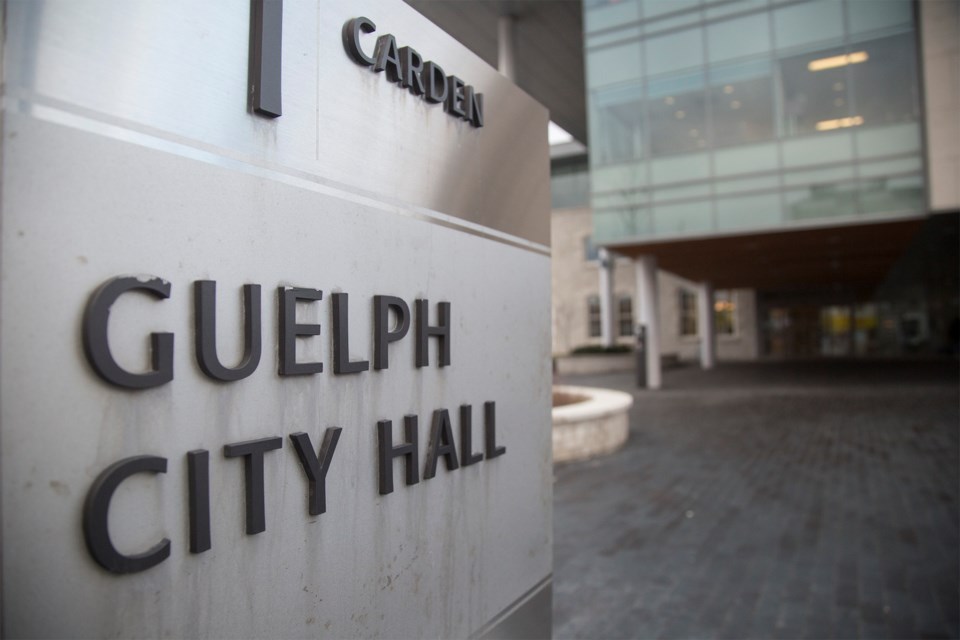Property owners will see a 4.46 per cent jump in their taxes this year, which is down from the previously approved 5.17 per cent hike
City council endorsed the new amount in a 11-2 vote at the end of a day-long special meeting on Wednesday which saw confirmation of the municipality’s first multi-year budget. The two-year spending plan was initially endorsed in late 2021.
“I feel very comfortable in supporting the confirmation vote,” said Mayor Cam Guthrie. “I believe we provided value (for tax money collected) tonight.”
Councillors Dan Gibson and Christine Billings voted against the budget.
Council made several changes to the staff-prepared spending update throughout the day, with some pushing the taxpayer contribution up and others intended to provide tax relief.
In the end, the day’s big “winners” as Guthrie put it, were accessible housing, transit and small businesses.
On the housing front, council unanimously agreed to put $500,000 into a reserve to support projects in the community – something staff urged be removed in light of reduced development charges and parkland dedication fees stemming from the implementation of Bill 23, the province’s More Homes Built Faster Act.
Staff recommended the annual contribution be taken out, as projects already benefit from Bill 23, with the anticipated drop in city revenue likely to exceed $1 million.
It was Coun. Rodrigo Goller who brought forward the idea of putting it back in the budget, but with funding taken from the tax rate contingency fund rather than property taxes – meaning it didn’t impact the overall tax increase.
That money, Goller explained, could be used as seed money to get projects off the ground and used as leverage to garner grants from upper-tier levels of government.
“We have to take into account that we have inadequate social housing in Guelph,” the councillor said, noting there have been no geared-to-income housing projects in 17 years.
“At least we’re putting our money where our mouth is this year,” added Guthrie. “I think we should do something.”
With the contribution approved, that reserve now sits at about $575,000, said deputy CAO Colleen Clack-Bush, who told council she’s unable to predict how many projects, if any, will come forward in search of funding this year.
Unanimous approval was also given to extending the pilot Kids Ride Free program on Guelph Transit, which comes at a stated cost of $138,911.
A sliding scale affordable bus pass program is also set to return, thanks to another unanimous vote. That initiative was approved at a cost of $458,000, which is to be paid out of the tax contingency reserve for 2023, then built into the base budget for inclusion in future years.
In addition, one-time capital funding associated with the program was approved at $100,000, which is also to come from the reserve.
Another effort to be built into the base budget moving forward is a $202,000 community benefit agreement for the Welcoming Streets Initiative, which previously received one-time funding three years in a row.
“I absolutely think this needs to be permanent in our community,” said Guthrie.
“We get a valuable return on investment for this,” added Coun. Michele Richardson, noting it helps reduce policing and hospital costs. “I’m fully in support.”
The initiative sees three Guelph Community Health Centre outreach workers support downtown business owners and workers by responding to mental health situations that don’t require a police response, helping struggling individuals connect with needed services.
Small business owners may also see benefit from a $300,000 commitment to assist with consulting, marketing, research, mentorships and more.
“Businesses actually save money because of these services,” Guthrie said. “I think it’s absolutely necessary.”
Taking the tax increase in a downward direction, at the prompting of Billings and Gibson, council unanimously agreed to fund $500,000 in lost revenue due to the implementation of Bill 23 from the tax rate contingency fund.
The main inspiration for that, Billings explained, is that Premier Doug Ford has publicly stated the province will take steps to make municipalities “whole” again and it’s not known if the lost revenue will be made up in some way down the line.
By taking it from the reserve, the revenue hit won’t be built into future budgets as it sits now.
Though the approved budget anticipates a $1 million hit to revenue, with half made up by not funding the housing reserve through property taxes, but the real impact is expected to be closer to $4 million.
Deputy CAO Trevor Lee explained that if the impact exceeds $1 million, those additional dollars will be taken from the same reserve account anyway.
Gibson proposed further budget reductions, but they didn’t have enough support to pass.
The largest of his suggestions was to eliminate $968,000 in phased-in operating costs for the planned South End Community Centre and new central library.
Because the projects won’t come online until at least 2026, Gibson proposed holding off on the phase-in or adding the draft 2023 amount when the facilities open.
“It’s simply just a reflection of reality on the ground,” the councillor explained, noting the start of construction has been pushed back for both, adding the “most defensible time” to increase taxes is when a new service level is provided.
That amendment was voted down 8-5, with councillors Michele Richards, Phil Allt, Erin Caton, Linda Busitile, Cathay Downer, Leanne Caron, Dominque O’Rourke and Ken Yee Chew opposed.
A suggestion to cut the phase-in in half died by the same vote.
Gibson further proposed the idea of cutting the annual one per cent infrastructure levy in half, though that too fell flat. Staff noted it was already decreased to 0.5 per cent, so the councillor’s motion would have put it at 0.25 per cent.
“Let’s slow down the pace. We can do this over longer,” Gibson said of addressing the city’s infrastructure backlog. “We have a (staffing) capacity issue to get the work done in the first place.”
However, a majority of council didn’t agree with kicking those costs down the road.
